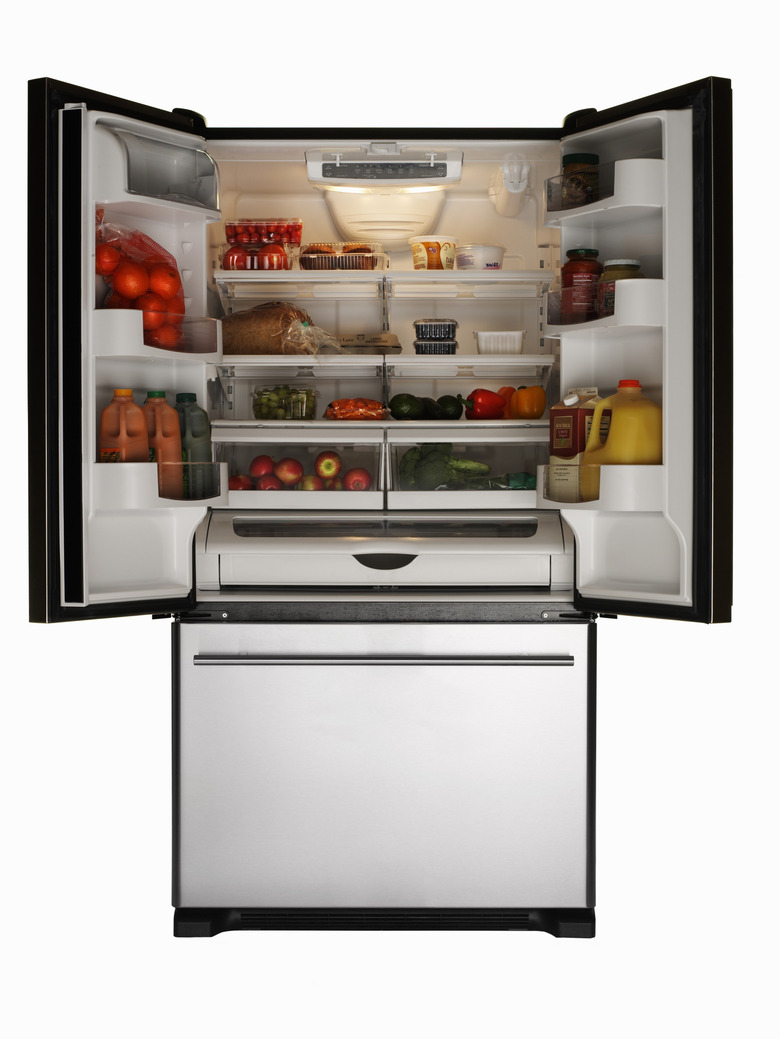The Average BTUs For A Refrigerator
BTU usage is an important factor to keep in mind with every home appliance. This number is directly related to the electricity costs, and is essential knowledge if you're trying to keep your monthly bills down. Knowing the average BTU usage of a refrigerator is essential when purchasing a new model.
British Thermal Units
British Thermal Units
BTU is an abbreviation for British Thermal Unit, a unit used to measure heat energy. A single BTU is roughly the amount of heat it takes to raise the temperature of a pint of water by 1 degree Fahrenheit or the amount of heat put off by a kitchen match, and is equal to 3.413 watts. All home appliances have a BTU rating, more accurately written as BTU/h, measuring the amount of heat energy they consume every hour.
Average BTU Usage
Average BTU Usage
Cooling food requires a considerable amount of energy, which means that a refrigerator adds significantly to your monthly electric bill. According to electricity expert Michael Bluejay, the average refrigerator uses 488 BTUs per hour in normal use. If you put something especially warm inside the fridge, it must work harder, consuming a greater number of BTUs hourly.
Leaving the Door Open
Leaving the Door Open
Leaving the door of the refrigerator open is extremely wasteful, because the appliance has to run continually at full power in a futile effort to cool the chamber. No matter how long the compressor runs, the fridge can never reach its target temperature because of the warm air constantly flowing in from your kitchen. An fridge door left open for an hour causes a refrigerator to use approximately 734 more BTUs more than a closed refrigerator, for a total average of 1,222 BTUs per hour.
Electricity Usage
Electricity Usage
This BTU usage directly impacts your home's electricity costs. Because 1 BTU is equal to 3.413, 1 BTU/h is equal to 3.413 watt hours. An average refrigerator uses 143 watt-hours of electricity hourly, with an additional 215 in the case of an open door, resulting in a total of 358 watt-hours.
